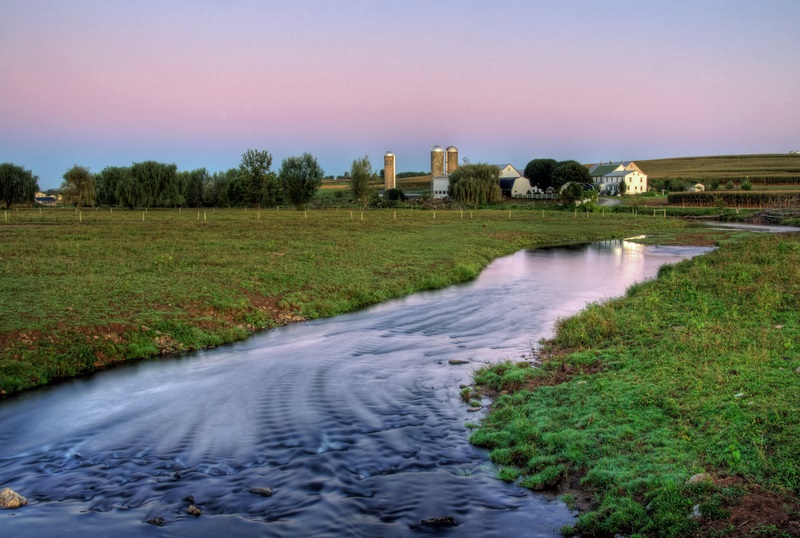Pa. can keep the Chesapeake Bay clean without hurting farmers – here’s how
By Ron Kreider
By PennLive Op-Ed
May 25, 2016
I grew up in Lancaster County and generations of my family have called Kreider Farms Dairy our home since 1736.
I’m fortunate to be part of a community that cares so much about our agricultural heritage and works to be good environmental stewards of our land.
Every farmer I know wants to tackle the real environmental threat of livestock waste runoff. It’s a serious threat to Pennsylvania’s environment, waterways and the Chesapeake Bay.
That’s why it’s disappointing to hear the Pennsylvania Department of Environmental Protection wants to transform local conservation districts and have them ‘police’ farmers who are working to deal with this problem.
Not only are farmers working on this problem, but we’ve had the technology to do so for nearly five years. Unfortunately, Pennsylvania has ignored the solution.
In July 2011, we unveiled a groundbreaking new technology at Kreider Farms that protects local streams and the Chesapeake Bay from environmental impacts of livestock waste.
It also saves taxpayer money and has the potential to create a source of renewable energy and water for farms.
Standing before state officials and the media, we demonstrated an advanced micro-aerobic digestion system by Bion Environmental Technologies that would dramatically reduce runoff by treating animal waste on our farm before it ever made it to local waterways.
Bion’s Phase II plans at Kreider would also create a renewable energy and a re-usable water stream for farms.
Imagine that: Farms could be completely self-reliant while virtually eliminating pathogens, reducing greenhouse gas emissions and impacts to local waterways.
In a livestock agricultural community like Lancaster County, it was a game changer.
The Bion technology and others in the marketplace are key to helping our commonwealth meet the Federal Environmental Protection Agency’s (EPA) Chesapeake Bay initiative to reduce nutrient and sediment loss into the bay by 2017. If we don’t meet the EPA’s mandate, Pennsylvania taxpayers are facing a multi-billion-dollar cleanup bill.
Let’s be clear: Pennsylvania’s farmers have made substantial progress in reducing pollution in the last 30 years. We commend them for that. But the science indicates that more needs to be done to clean up our rivers and streams.
But less than five years later, Bion’s facility has been shuttered.
The reason is simple: The commonwealth refused to create a competitive bid process for verified nitrogen and phosphorus nutrient credits, just like they do for many other commodities.
Competitive bidding is a strategy used throughout federal, state and local government to procure the lowest-cost goods and services. The credits would be sold to meet the federal mandate.
What happened? DEP believes state government – not the private sector – can solve this problem, but the farming community disagreed, and we weren’t the only ones.
A 2013 report by the nonpartisan state Legislative Budget and Finance Committee demonstrated the cost to comply with the Chesapeake Bay mandates could be reduced by as much as 80 percent through a competitive bidding program that would engage the private sector.
A U.S. appeals court has upheld a federal plan limiting pollution in the Chesapeake Bay despite objections from farmers who accuse the Environmental Protection Agency of abusing its power.
Before changing local conservation districts from educators into police, state government needs to know that something hasn’t changed since that hot day in July 2011: The technology still works.
The private sector and our farmers are ready to help solve this very public challenge in a more cost-effective manner for Pennsylvania families.
Pennsylvania’s government-centric approach also has cost the commonwealth a host of ancillary environmental benefits.
Systems like Bion’s capture the nitrogen and nearly eliminate ammonia and manure odors that we all sense when crossing Pennsylvania farmlands – key goals for the state’s proposed Growing Greener III program.
It isn’t too late for Pennsylvania, our local waterways and the Chesapeake Bay. Pennsylvania needs to realize that government can’t do this alone.
Heavily fining working farmers isn’t the answer. Farmers are ready to partner on this issue and clean up one of Pennsylvania’s greatest environmental challenges and, in the process, save taxpayers billions.
Ron Kreider is the owner of Kreider Farms dairy, a family-owned farm in Lancaster County. Kreider is a member of the Coalition for an Affordable Bay Solution (CABS) Policy Committee. For more information, see: affordablebaysolutions.org.

